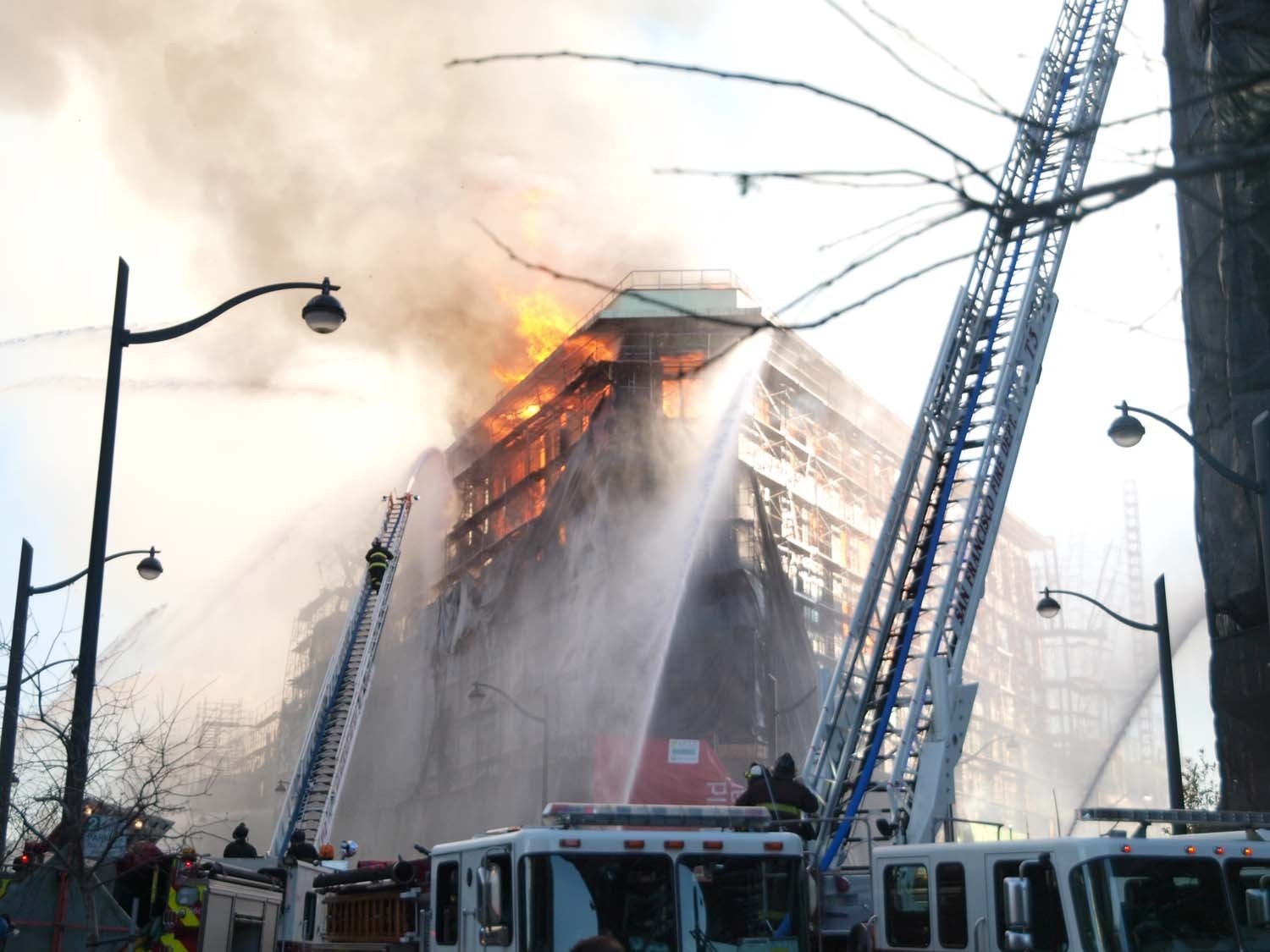Construction Fires

The potential for extensive damage during a fire event is greatest when a building is under construction because it is largely unprotected. Code-required fire-suppression systems such as sprinklers and fire walls are typically nonexistent until a building is near completion. Regardless of the material used in a building’s construction, prolonged exposure to fire without mitigation can lead to structural weakness and potential collapse. However, a building does not spontaneously combust. Fires that occur during the construction process are most often attributable to human error, but in instances when a fire starts during a non-work timeframe, arson can also be a cause.
These types of fires generate extensive media coverage. One recent example is an apartment fire in Raleigh, NC, in which two reports outlined the facts and concerns surrounding this issue very well. Below are several resources to help reduce the occurrence and extent of fires in buildings under construction.
Top Resources
A roundtable discussion convened by the International Code Council, the National Association of Home Builders and the National Multifamily Housing Council regarding fires in buildings under construction.
Rutherford, NJ Fire Marshal Paul Dansbach looks at a single-family residence under construction and examines the potential for fire spread and structural instability under fire conditions.
Recent fires in apartment buildings under construction highlight the importance of developing an effective fire safety program.
A building is best identified during preplanning, but there are distinct features that will help firefighters identify the building type as they pull up on scene.
NFPA 241 provides measures for preventing or minimizing fire damage to structures, including those in underground locations, during construction, alteration, or demolition.
This webinar covers the many different ways fires start and provide attendees with a better understanding of root causes, which will help solve fire risks during construction with the goal to prevent fires from occurring.
Best Practices
The website contains extensive background information on how to reduce the frequency and severity of fires in buildings while they are under construction.
AIG has developed this extensive series of checklists to help contractors and fire service proactively evaluate jobsite fire risk factors during the construction process.
In order to manage risks and hazards and reduce catastrophic events in buildings under construction, there needs to be a plan and management model in place. This website contains one recommended approach.
Fires during construction can be eliminated or controlled through the early planning, scheduling, and implementation of fire prevention measures, fire protection systems, rapid communications and onsite security.




